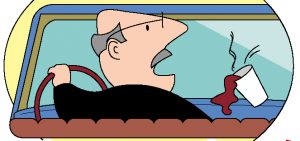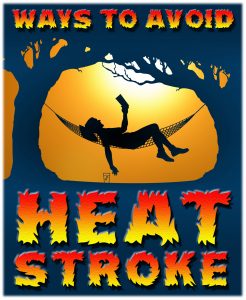
The hum of lawn mowers ring through the country in summertime.
Homeowners rarely consider this task dangerous, but the fact is mowers can and do cause fires.
A lawn mower was responsible for a 2015 wildfire in Oregon that cost millions to fight. The fire raged through more than 26,000 acres, threatening 158 homes.
Every summer, mowers are responsible for devastating house fires, according to the Consumer Product Safety Commission. In 2013, a Virginia homeowner parked a hot mower under a wooden deck. The heat from the mower sparked a fire that rapidly consumed the house.
Fire in lawn mowers is not a commonly acknowledged problem.
Any lawn mower, electric or gas, can catch fire. As with any powerful tool, many things can go wrong. Nearly every mower brand has had a recall due to fire potential. In 2011, John Deere recalled mowers after cooling fans failed, causing a reported 83 fires. Toro recalled its zero-turn mowers in 2013 after an idler pulley rubbing against the fuel tank posed a fire hazard. Craftsman mowers were recalled because of fuel line connections, according to classaction.org.
Fuel hazards are one of the leading causes of fire in gas-powered lawn mowers. Fuel leaking onto the motor can cause a fire. Fuel vapors around a hot muffler also cause fires.
According to Underwriters Laboratory, the exhaust of a mower is 240 degrees and the engine can heat to 200 degrees. A gas cap leak or sloppy fueling can easily spark a fire.
Experts recommend that you fill a mower only when it is cool.
Gas-powered mowers are not the only types responsible for fire. According to the Consumer Product Safety Commission, this year an electric mower by Hong Kong Sun Rise Trading, was recalled when it was discovered that a short in the circuit board could cause a fire.
Another common cause of fire has nothing to do with the machine itself and everything to do with how it is used. Mowers frequently cause brush fires when tall, dry grass becomes stuck in the mower deck. This grass can get packed into the blazing hot muffler and catch fire. Not only does it burn the machine, but usually sets off a grass or field fire. This could have been the cause of the Oregon wildfire of 2015.
Rock strikes cause fires when the mower’s metal blades, traveling 200 mph at the tip, hit even a tiny rock, causing a spark and igniting dried grass.
Fire experts recommend homeowners wet down dried grass or brush before mowing. An even better idea is to not mow at all in hot, dry, windy weather.
Best practices for using your lawn mower:
* Start mowing near the house and mow outward to create a firebreak.
* Never fuel up a hot mower.
* Replace any leaky gas caps.
* Once you have fueled up, keep the gasoline container at a safe distance.
* Disconnect the spark plug before doing any service on the mower. A spark plug can cause the mower to start unexpectedly.
* Clear rocks from the mowing area.
* Keep the mower clean of fuel.
* Routinely clean out grass from the mower blades with a hose. Never put your hands near the blade unless the spark plug has been disconnected and the unit has completely cooled.












































